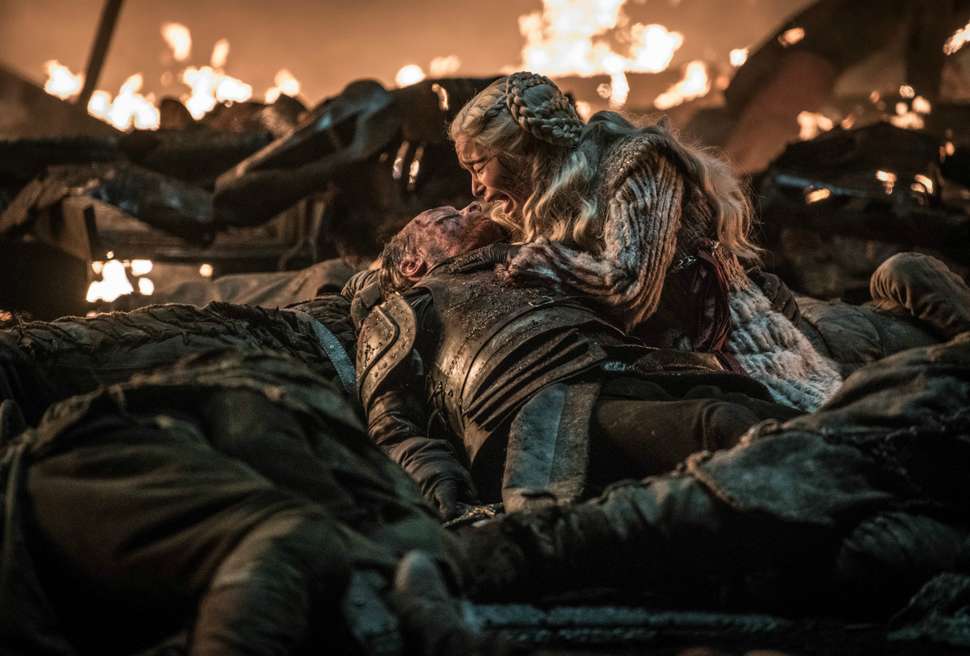What does Game of Thrones, Avengers: Endgame and Star Wars: The Last Jedi have in common? All of them are important chapters of their respectful franchises, and all of them have important deaths (and important battles). Each of these dealt with said deaths differently, and to different effect.
All of these franchises have strong, dedicated fanbases, formed through years of narrative worldbuilding. All of them had the pressure of catering to fan expectations, running the risk of disappointing most, if not all of them. With the Last Jedi, Rian Johnson had the unenviable task of reintroducing Luke Skywalker in the story. He had the final call on how Luke would react to Rey offering him his old lightsaber.
Similarly, David Benioff and D.B. Weiss had the task of delivering a worthwhile climax to a central storyline. They had built this story up through all the seasons, hitting critical checkpoints in recent seasons with the introduction of the Night King and fraught battles with the dead. With Endgame, the Russos had the monumental task of directing a fitting finale to the Infinity saga (as well as the first ten years of MCU).
How did these three teams pull off their finales? Well, the fact that we are talking about it means that some did their work better than others.
Clearing the Chessboard
The common theme between Rian Johnson and Benioff & Weiss’ storytelling decisions is that both parties wanted to subvert the expectations of the audience. Luke Skywalker was a classic hero, who through pluck and sheer earnestness had helped redeemed his father from the dark side. Now he was a disheveled old man, disillusioned, haunted by his one mistake that doomed the entire galaxy.
Similarly, Jon Snow, who was widely expected to be the Azor Ahai, was supposed to slay the Night King (or die trying, again). But then Arya Stark flew out of the blue and stabbed the Night King in the ribs. Suddenly, Jon Snow’s role in the prophecy became almost useless; his entire storyline, in retrospect, becomes shoddy since it builds up to a red herring ending.
The Russos, on the other hand, used a complex time travel plot to solve the central conflict of the film, before inciting a climactic battle that allowed for several fan favorite moments.
Of course, it looks like the Russos made a better bet by playing to the fans’ expectations instead of going against them, but that’s not the main reason why The Last Jedi and the Long Night ring hollow.
As artists and storytellers, Johnson, Benioff and Weiss are of course free to follow their own instincts and put their own spin on decades’ old properties. However, if a director’s auteur sensibilities overwhelm the story’s own narrative compass, sending it haywire, then we have a problem. Ultimately, the prior obligations created by previous entries in such franchises weigh more than individual artistic aspirations.
Not a Total Mess, but a Mess Nonetheless
Both ‘the Long Night’ l and the Last Jedi have several merits. The lighting of the Game of Thrones’ episode, for instance, was suitably dark, although it did prevent most of us from understanding what exactly was happening in several scenes. Similarly, some of the themes expressed in the Last Jedi, that urges both Rey and the audience to kill the past, are interesting, set against the backdrop of visually pleasing lightsaber battles. But the central problem with both pieces of media is that they were told in spite of the narrative foundations laid before them.
Yes, the Battle of Winterfell wasn’t strategically sound, but that’s not as important as the fact that the Long Night, which could have possibly been the most important conflict in the last few thousand years, ended in one night. It highlights Game of Thrones’ transition from a realistic medieval political thriller into a full-blown epic fantasy in the span of two seasons. These new narratives- the survivors must now battle Cersei with weakened reserves (and Rey must be a new kind of Jedi to fight Kylo Ren)- come at the expense of previous long-term storytelling.
Subverting expectations is a fine thing, but there’s an art to it. It’s clear that Johnson, Benioff and Weiss haven’t yet mastered it. The Russos also paved the way for new heroes and new stories, but they did so by providing definitive endings to almost each of the original cast of Avengers. Yes there was fanservice, but more importantly, there was good storytelling that organically built off the narrative threads laid in place over the previous twenty-one films.
Of course, while Endgame was a finale, both ‘The Long Night’ and The Last Jedi were not. We are still going to tune into Game of Thrones this Sunday to see what happens to the rest of the cast.
But it’s a smaller story now, one more concerned with family matters and old grudges. The story that George R.R. Martin was telling in his books suggested that such squabbles are meaningless, because the end of everything was headed there way. Now that the Long Night is gone, what is really left that compares as a threat in terms of scale and scope? Similarly, the new Star Wars film is subtitled ‘The Rise of the Skywalker’. With both Skywalkers dead, who is this new Skywalker going to be? Common sense suggests it’s Rey, but hey, if J.J. Abrams wants to subvert our expectations it probably going someone else.
Avengers: Endgame, in the meanwhile, is already en route to dethroning Avatar as the highest grossing film of all time. It has amassed 2.19 billion dollars in just eleven days. Just goes to show the value of good old-fashioned storytelling, doesn’t it?
